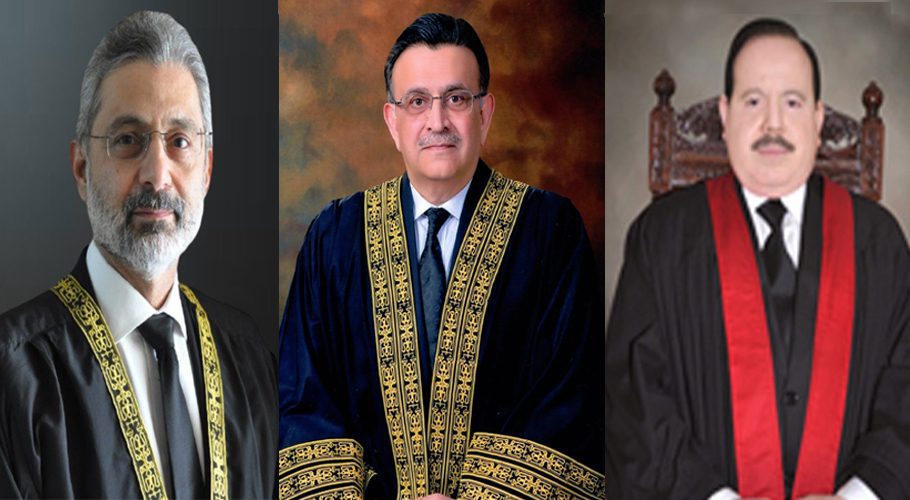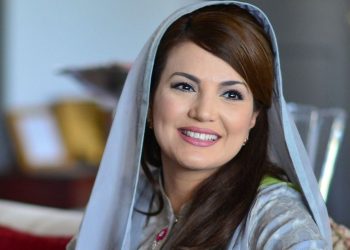ISLAMABAD: Supreme Court’s Justice Qazi Faez Isa and Justice Sardar Tariq Masood said on Thursday Chief Justice Umar Ata Bandial weakened the Judicial Commission of Pakistan (JCP) by refusing to accept its decision regarding elevation of judges.
Both Senior judges expressed disappointment over Chief Justice of Pakistan (CJP) Umar Ata Bandial’s speech at the new judicial year ceremony, saying he “said much more” than what he was supposed to say at the event.
The purpose of the ceremony, according to the Chief Justice of Pakistan (CJP), was to establish our goals and lay out our vision for the upcoming year, but the CJP said much more. He attempted to defend the Supreme Court’s rulings, address objections to its verdicts, and speak for the Supreme Court alone, Justice Qazi Faez Isa and Justice Sardar Tariq Masood said in the joint letter written addressed to all members of the Judicial Commission of Pakistan (JCP)
“The Supreme Court does not consist of the CJP alone,” they said, “but it includes all of the Supreme Court judges. It concerned me that the CJP was making comments about active cases.
One of the nine members of the JCP, Justice Isa, as well as Justice Masood, both wrote letters shortly after the commission’s meeting on July 28 saying that the committee rejected the nominations to elevate judges.
Justices Isa and Masood describe CJ Umar Ata Bandial’s views on pending cases as “disconcerting” in a joint letter.
They questioned whether judges should be praised for the number of cases decided while more than a third of the Supreme Court lies vacant in their most recent letter, noting that a full court would definitely have decided many more cases.
They also admitted that they had frequently requested the JCP chairman to organize a meeting of the panel “to enable making of nominations to the Supreme Court” both before and after the declared summer vacations.
We had emphasized the urgency by stating that failing to fill the vacancies would be a flagrant violation of a constitutional obligation. But it was all in vain,” said the two senior judges.
They declared, “The Supreme Court cannot be put in suspended animation until members, to use the CJP’s words, ‘support the candidates proposed by the chairman’.”
With instructions to “release the letter and its Urdu translation to media since it pertains to CJP’s address which was widely published,” a copy of the joint letter has also been given to the acting Supreme Court registrar, who is also JCP’s acting secretary.
The Supreme Court Bar Association (SCBA) and its current and several past office bearers were accused of political partisanship because they requested that the full court be constituted to hear the cited case, according to Justice Isa and Justice Masood, who also claimed that the CJP made “uncalled for and disparaging” remarks about them.
They grieved that the CJP was unable to “disparage and impute motivations to them” after the Supreme Court rejected their motion.
Additionally, they said the CJP further sought to justify what the apex court did by needlessly asserting that the request had no legal ground when the Constitution required the Supreme Court to give decisions.
The justices wrote in their letter that mentioning the JCP’s activities and decisions in the speech—a separate and independent organization under the Constitution—was “very inappropriate and illogical.”
The letter noted that the CJP had voiced his unhappiness and claimed that the candidates offered by the JCP chairman had not been approved. He also placed the blame on federal government authorities, including the law minister and attorney general for Pakistan.





































